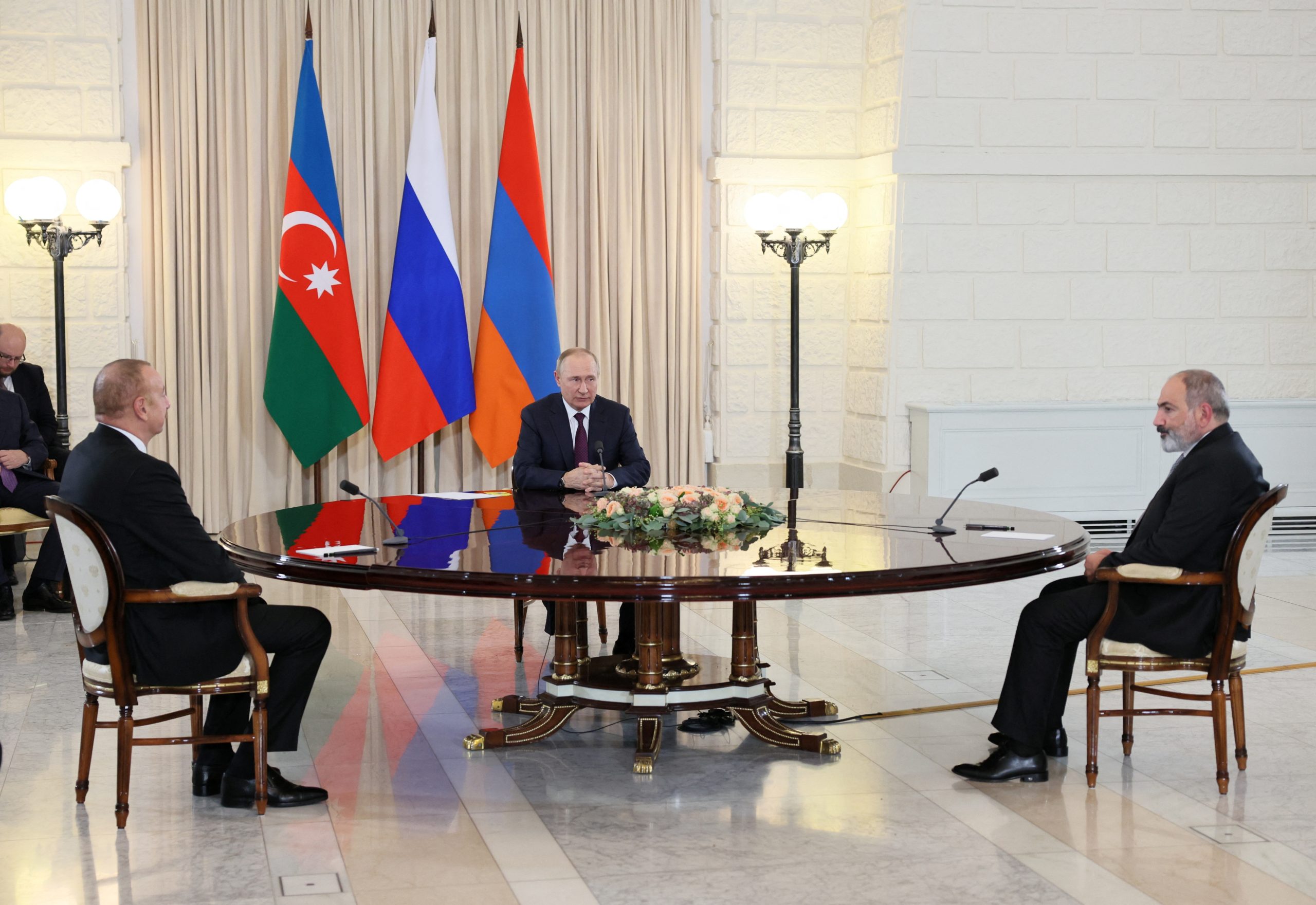Key Developments in Armenia-Azerbaijan Peace Talks
The leaders of Armenia and Azerbaijan are set to meet in Abu Dhabi, United Arab Emirates, on Thursday to continue efforts toward a lasting peace agreement between the two nations. This meeting has been anticipated following recent positive signals from the United States regarding the potential for a swift resolution to the long-standing conflict.
The dispute over the Karabakh region has been a source of tension between Baku and Yerevan for decades. In 2023, Azerbaijan launched a military operation that led to the recapture of Karabakh, displacing more than 100,000 ethnic Armenians from the area. The situation has remained volatile, with both sides facing significant political and humanitarian challenges.
Earlier this year, Armenian and Azerbaijani officials reached an agreement on the framework of a comprehensive peace deal in March. However, the process has faced delays as Azerbaijan has introduced additional demands, including changes to Armenia’s constitution to eliminate any territorial claims over Karabakh. These conditions have complicated the finalization of the agreement.
On Wednesday, the Armenian government confirmed that Prime Minister Nikol Pashinyan and Azerbaijani President Ilham Aliyev will hold talks in Abu Dhabi as part of the ongoing peace process. The Azerbaijani presidency released a similar statement, indicating mutual commitment to resolving the conflict.
This development follows remarks by U.S. Secretary of State Marco Rubio, who expressed optimism that the two countries could achieve a rapid peace deal. The international community is closely watching these negotiations, as stability in the Caucasus region is seen as critical for regional security and economic development.
Aliyev and Pashinyan last met in May during the European Political Community summit in Albania. At that time, leaders such as French President Emmanuel Macron called for both sides to finalize the peace agreement. The upcoming talks in Abu Dhabi aim to build on those discussions and bring the parties closer to a sustainable solution.
Recent Challenges and Ongoing Efforts
Despite the progress made in negotiations, several key issues remain unresolved. One of the main sticking points is the status of the Karabakh region and the rights of its population. Both countries have different visions for the future of the area, which has contributed to the prolonged nature of the conflict.
Another challenge is the need for confidence-building measures between the two nations. Trust has been eroded over years of hostility, and both sides must demonstrate a willingness to compromise. International mediators, including the OSCE Minsk Group, have played a role in facilitating dialogue but have not yet been able to broker a final agreement.
The involvement of external actors, particularly the United States and Russia, has also influenced the dynamics of the conflict. While the U.S. has shown support for a peaceful resolution, Russia continues to maintain a strong presence in the region, often acting as a mediator between the two countries.
Future Prospects
As the talks in Abu Dhabi approach, there is hope that the two leaders can address outstanding issues and lay the groundwork for a durable peace. The success of these negotiations will depend on the willingness of both sides to prioritize long-term stability over short-term gains.
The international community remains vigilant, aware that a resolution to the conflict could have far-reaching implications for the broader region. With continued diplomatic engagement and a focus on mutual interests, there is potential for a breakthrough that could bring lasting peace to the Caucasus.







